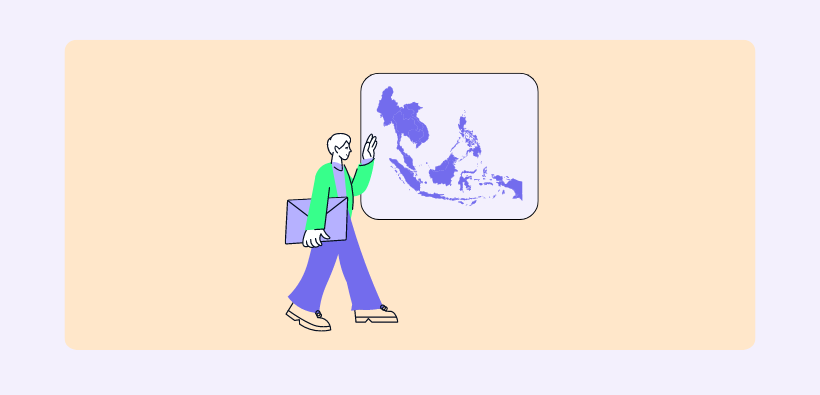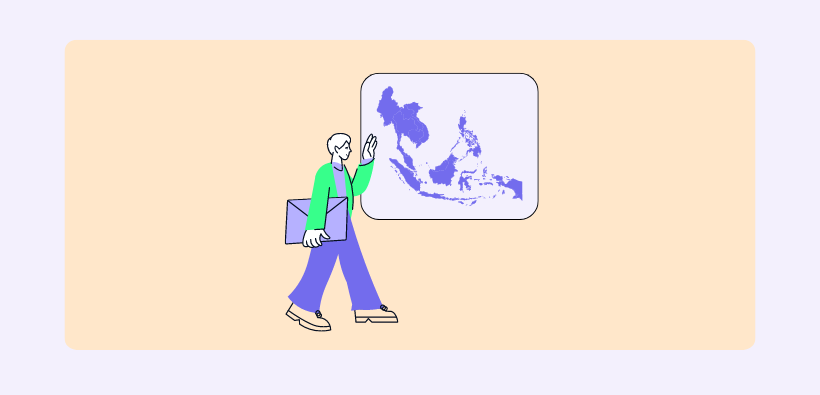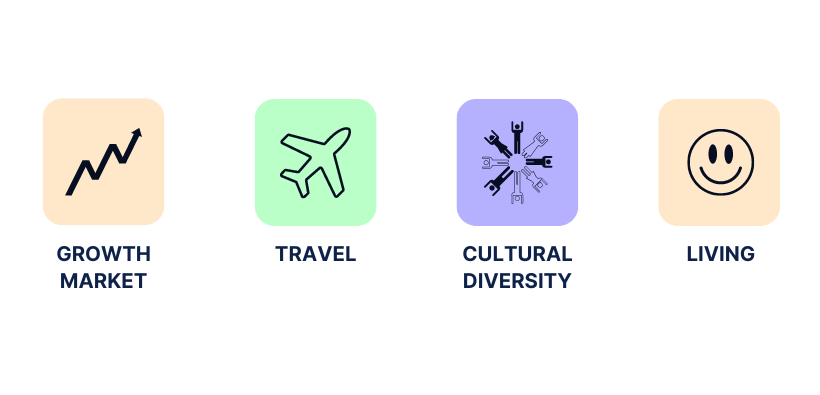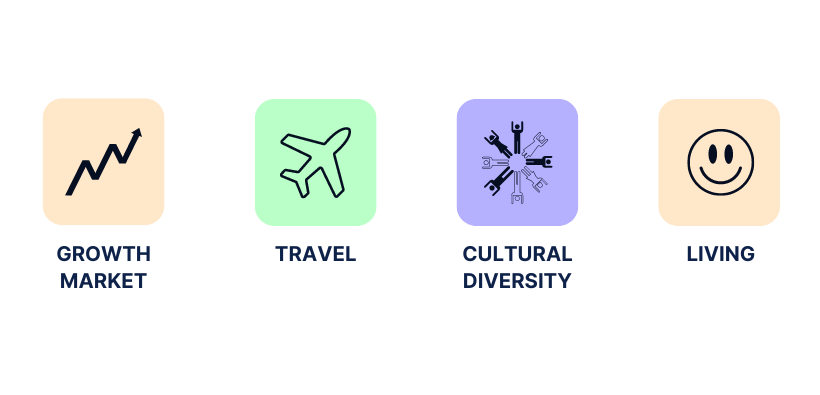Southeast Asia (SEA) is a diverse and rapidly evolving region. It comprises of 11 countries: Brunei, Cambodia, Indonesia, Laos, Malaysia, Myanmar, the Philippines, Singapore, Thailand, Timor-Leste, and Vietnam. The region is home to approximately 680 million people, making it the world’s third largest population. The cultural and linguistic landscape of Southeast Asia is incredibly rich, with many countries having their own unique cultures and languages. Economically, Southeast Asia presents a wide spectrum of development stages, from highly developed economies like Singapore to emerging markets such as Cambodia and Laos.
The region has become a focal point for management consulting firms and an increasingly popular location choice for applicants. This article will provide an overview of the management consulting landscape in SEA as well as what makes it unique and what you can expect as a consultant working in this vibrant and exciting part of the world.












